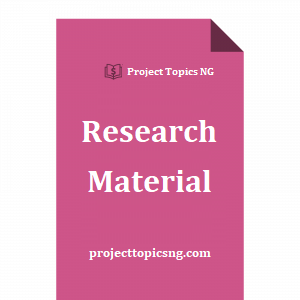Brief Introduction
The recent multi-billion dollar corporate scandals (Enron, Tyco, World Com, Adelphia, and others) have shaken the business world. The public and governmental reactions to these events have been enormous. It has triggered congressional action that resulted in legislation (Sarbanes-Oxley Act, 2002) and auditing standards (Statement of Accounting Standard No. 99) that require companies and their auditors to be more aggressive in detecting and preventing fraud, which in turn, has elevated the importance of the accounting profession in protecting the integrity of the financial system in order to prevent such scandals.
Additionally, in today’s society, there is widespread growth in white-collar crimes evidenced by both fraudulent financial reporting and misappropriation of assets. Racketeering and terrorist groups often rely on money-laundering schemes to conceal and disguise their activities such as identity theft, present new challenges to accountants. The impact on the accounting profession has been dramatic.
The environment has created many job opportunities in the accounting profession at federal, state and governmental agencies, such as the Securities and Exchange Commission, the revenue service and the office of the inspector general, all having an increased impact on accountants and others with forensic accounting investigation skills.
Table of Content
Title
Table of Contents
Abstract
CHAPTER ONE
1.1 Background of the Study
1.2 Statement of the Problem
1.3 Objective of the Study
1.4 Scope of the Study
1.5 Relevance of the Study
1.6 Hypotheses
1.7 Limitation of the Study
CHAPTER TWO: LITERATURE REVIEW
2.0 Historical Background of Forensic Accounting
2.1 Definitions and Meaning of Forensic Accounting
2.2 Definition and Meaning of Fraud
2.3 Types of Fraud
2.4 Nature and Extent of Financial Crime
2.5 Causes of Fraud
2.6 Fraud Detection, Prevention and Control
2.7 Roles of Forensic Accounting in Litigation Support
2.8 Skills and Characteristics of a Forensic Accountant
2.9 Development of Forensic Accounting in the
Accounting Profession
2.10 Opportunities and Challenges of Providing
Forensic Accounting Services
2.11 An Overview of Nigeria Business Environment
Roles and Responsibilities of the Traditional
Auditor or External Auditor
2.12 Differences between a Forensic Accounting
and the Traditional Auditing
2.13 Importance of Forensic Accounting on the
Nigeria Business Environment
2.14 Financial Statement Fraud in Nigeria Business
Environment and its Link with Forensic Accounting
2.15 Level of Forensic Accounting in Other Countries
CHAPTER THREE: RESEARCH METHODOLOGY
3.0 Introduction
3.1 Research Design
3.2 Population
3.3 Sample and Sampling Technique
3.4 Research Instruments
3.5 Sources of Data
3.6 Problem Identification
3.7 Research and Validation of Hypothesis
3.8 Validation
CHAPTER FOUR: ANALYSIS AND INTERPRETATION OF DATA
4.0 Introduction
4.1 Questionnaire Administration
4.2 Data Description and Interpretation
4.3 Test of Hypothesis
CHAPTER FIVE: SUMMARY, CONCLUSION AND RECOMMENDATIONS
5.1 Introduction
5.2 Summary of Findings
5.3 Conclusion
5.4 Recommendations
Bibliography
Appendix


